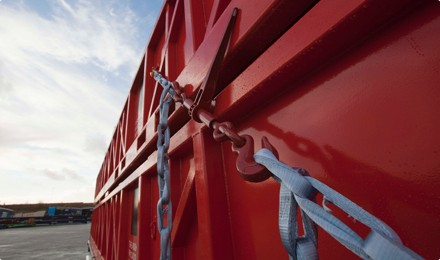
The industrial link chains used for handling heavy loads and lashing cargo are traditionally made of iron or steel. These chains, called TYCAN, are made from webbings made of DSM’s ultrahigh molecular weight polyethylene (UHMwPE) fiber.
According to the company, the chains have economic, environmental and safety advantages over traditional chains. “DSM Dyneema and Load Solutions came together because we both understood the overwhelming advantages of link chains made with Dyneema,” says Dietrich Wienke, manager of new business development at DSM Dyneema. “Our fiber is the only fiber in the world capable of giving the TYCAN chains what they need: superior strength at lowest weight, unbeatable bending fatigue and abrasion resistance, plus excellent outdoor performance and endurance even in very harsh operating conditions.”
Float on water
The fiber also makes the chains resistant to chemicals and seawater-proof, and because Dyneema has a density of less than one, TYCAN is reportedly the only chain in the world that floats on water.
The chains can be wrapped over the edges of cargo without suffering any damage and withstand the sorts of shock loads that may occur on ships sailing through very stormy weather, without any stretching that might cause the cargo to shift. Chains are also more flexible than ropes for holding heavy loads, and it is very easy to shorten link chains to the required length for any particular job, by doubling them back using hooks.
The TYCAN changes can hold in place a wind turbine wing weighing six tonnes, a 60-tonne battle tank, or even a 600-tonne electrical mega power transformer, the company says.
The chains have already passed the first and second levels of certification by DNV GL, the international classification society, while full and final certification of the chains is expected in early 2015.

